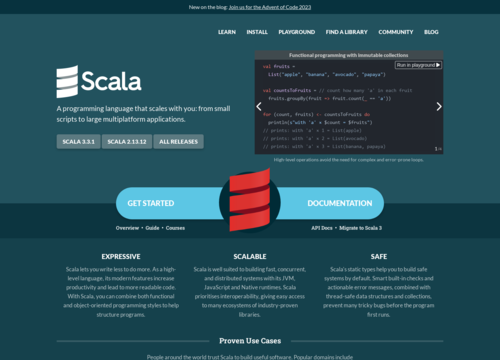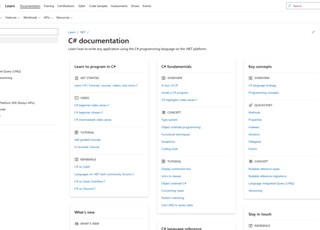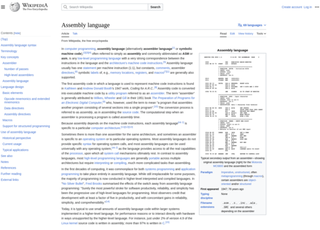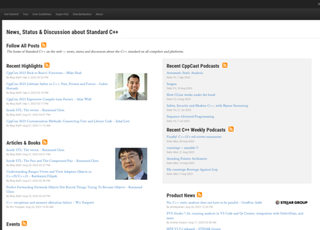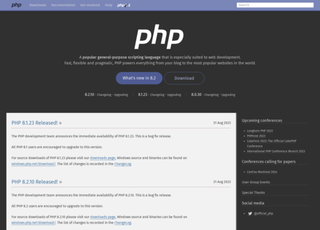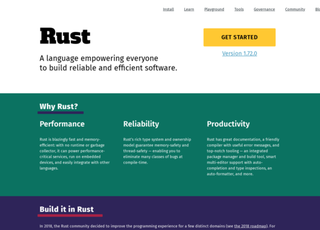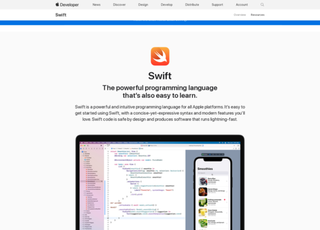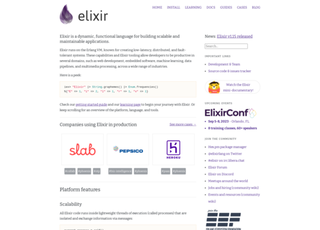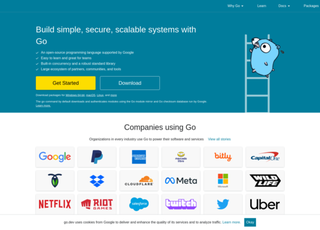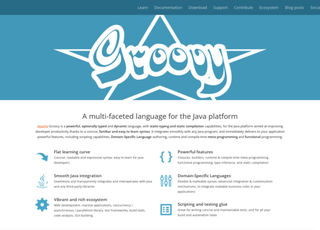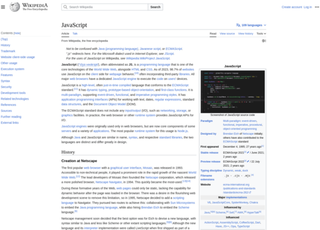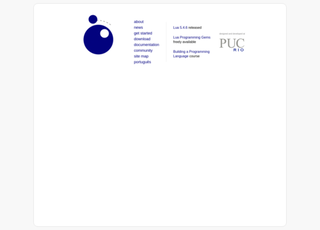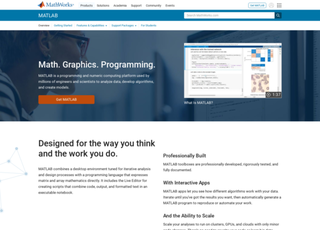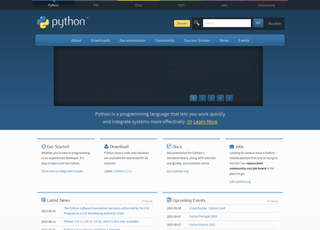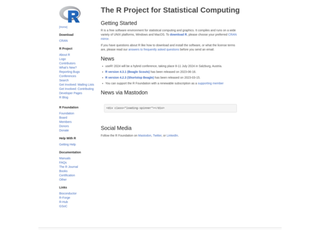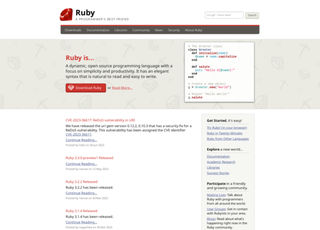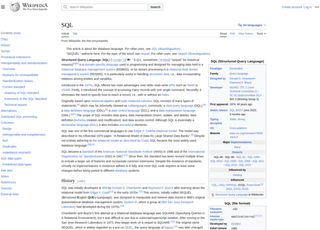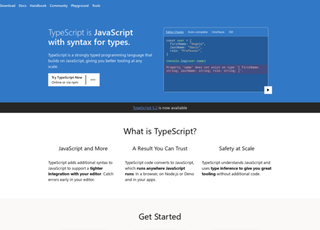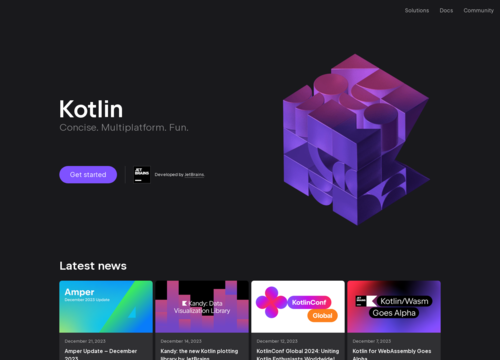Scala
Scala is a modern, high-level programming language that combines object-oriented and functional programming paradigms. It was created by Martin Odersky and first released in 2004. Scala stands out due to its ability to seamlessly integrate features of both object-oriented (like Java) and functional languages (like Haskell).
Key Features of Scala
Static Typing
Scala is statically typed, meaning the type of a variable is known at compile time. This leads to safer code and better performance. Despite its static nature, Scala's sophisticated type inference system makes it feel more like a dynamically typed language.
Functional Programming
Scala treats functions as first-class citizens. You can assign functions to variables, pass them as arguments, and return them from other functions. This supports a functional style of programming, which can lead to more concise, readable, and easier-to-test code.
Object-Oriented
Scala is a pure object-oriented language in the sense that every value is an object. Classes, traits, and objects form the foundation of Scala's OOP model, allowing for sophisticated hierarchies and modular code.
Immutability
By default, objects in Scala are immutable, which is a core concept in functional programming. Immutability makes it easier to reason about code and avoids a lot of common pitfalls in concurrent programming.
Conciseness
Scala's syntax is designed to be concise and expressive. It allows for more work to be done with fewer lines of code compared to Java, for example.
Compatibility with Java
Scala runs on the Java Virtual Machine (JVM) and is highly compatible with Java. This means you can easily use Java libraries in Scala and vice versa.
Case Classes and Pattern Matching
Scala has a special type of class called a case class, which is perfect for modeling immutable data. Combined with Scala's pattern matching feature, they enable a very powerful and expressive way of working with data structures.
Concurrency Support
Scala provides advanced features for concurrency, like the Akka framework. These tools help in building robust concurrent applications, which is critical in the modern world of computing.
Rich Collections Library
Scala offers a comprehensive collection of libraries, including a rich set of collection classes. These collections are designed to be easy to use and efficient.
Advanced Language Features
Features like implicit parameters and types, higher-kinded types, and macros allow for sophisticated abstractions and powerful DSLs (Domain Specific Languages).
Use Cases
Web Development
Scala is often used in web development, especially with frameworks like Play and Akka HTTP.
Big Data
Scala, particularly with Apache Spark, is a popular choice for big data processing.
Concurrent & Distributed Systems
Scala's concurrency model makes it suitable for complex concurrent and distributed systems.
Scala's Ecosystem and Community
Scala's ecosystem is vibrant and growing. This includes a range of libraries and frameworks that cater to various needs, from web applications to data analytics.
SBT (Simple Build Tool)
Scala's primary build tool, SBT, is powerful and flexible, making it easy to build and manage Scala projects.
Frameworks
Play Framework for web applications and Akka for building reactive systems are notable examples. They leverage Scala's strengths to offer robust solutions for modern software development.
Big Data Tools
Scala's integration with Apache Spark has made it a language of choice for big data processing. Spark's Scala API is expressive and efficient, offering a great platform for data engineering and analytics.
The community around Scala is active and supportive. There are numerous conferences, meetups, and forums where Scala enthusiasts and professionals share knowledge and collaborate. The community plays a significant role in the evolution of the language, contributing to its libraries and tooling.
Evolution and Future of Scala
Scala is not a static language; it continues to evolve. The introduction of Scala 3, also known as Dotty, brought significant changes and improvements:
Simplified Syntax
Scala 3 aims to make the language more consistent and simpler to learn without losing its expressive power.
Improved Type System
Enhanced features like union, intersection, and match types in Scala 3 bring more power and flexibility to the type system.
Metaprogramming
Scala 3 introduces new metaprogramming capabilities, making it easier to write generic and high-performance code.
The future of Scala seems promising, with ongoing development to make it more user-friendly, efficient, and powerful. It's being increasingly adopted in both enterprise and startup environments, particularly in areas requiring sophisticated and scalable applications.
Scala bridges the gap between functional and object-oriented programming, offering a unique combination of features that encourage writing safe, robust, and concise code. Its integration with the JVM ecosystem and its growing adoption in fields like web development and big data processing make it a valuable skill for software developers. The active community and continuous development of the language and its ecosystem further cement its place in the modern software development landscape.




















